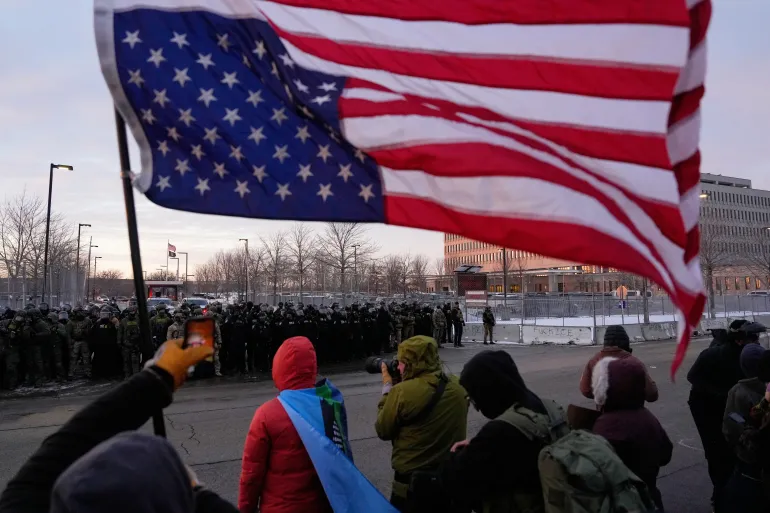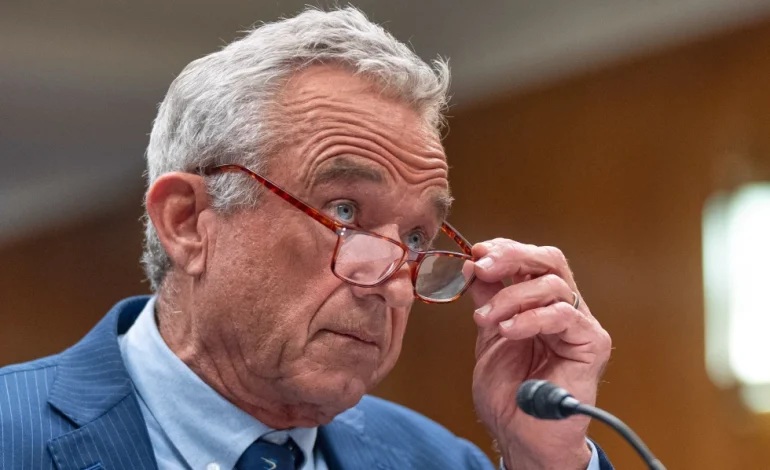A forthcoming White House report examining the roots of childhood illnesses is stirring political controversy, igniting tensions between agricultural interests, Republican lawmakers, and U.S. Health Secretary Robert F. Kennedy Jr. ahead of its anticipated Thursday release, as per The AP.
The report—developed by the Make America Healthy Again (MAHA) Commission—was promised by President Donald Trump within his first 100 days in office. It aims to assess how modern U.S. lifestyles, including prescribed medications, environmental toxins, and school nutrition, may contribute to rising childhood conditions like obesity, depression, and ADHD.
A central point of concern: the report’s possible stance on glyphosate, a chemical widely used in agricultural weedkillers such as Roundup. Farmers, along with several GOP lawmakers, fear the report may vilify the pesticide without giving producers a fair voice.
“We have jet fuel all over the place,” said Assistant Fire Chief Dan Eddy during a press briefing. “Our main goal is to search all these homes and get everybody out right now.” He confirmed that multiple homes sustained direct impact from the crash.
Fears of Fallout
Sen. Chuck Grassley (R-IA), speaking on the Senate floor Wednesday, voiced concern on behalf of farmers in his state who say they were left out of the process. “I hope there is nothing in the MAHA report that jeopardizes the food supply or the livelihood of farmers,” he warned.
A group of 79 Republican lawmakers previously sent a letter to Kennedy, warning that eliminating or restricting pesticides like glyphosate could harm agricultural productivity. Farmers argue glyphosate enables efficient weed control with minimal tilling, conserving both soil and fuel.
Kennedy Pushes Back
Kennedy has repeatedly downplayed the report’s potential threat to agriculture. In testimony before the Senate Appropriations Committee, he stated:
“There’s not a single word in [the report] that should worry the American farmer. We are not going to do anything to jeopardize that business model.”
Still, Kennedy has long been a polarizing figure—praised by some for lawsuits against corporate polluters, criticized by others for spreading anti-vaccine claims. His past legal battles against Roundup’s manufacturer have intensified scrutiny over his role in the commission.
Adding to the pressure, a letter signed by 360 MAHA supporters—including farmers, ex-campaign staff, and members of his health nonprofit—urged Kennedy to “hold the chemical industry accountable.” One of them, Dave Murphy, a fundraiser for Kennedy’s presidential bid, said he submitted pesticide studies for the report, despite political headwinds. “There’s a lot of pressure within Washington,” Murphy said.
Opaque Process Draws Criticism
Critics have also questioned the transparency of the MAHA Commission’s work. Though Kennedy has pledged “radical transparency,” no public meetings were held. The only footage released comes from a closed-door March meeting, shown in brief, edited clips.
The commission is comprised of several top officials, including Kennedy, Agriculture Secretary Brooke Rollins, FDA Commissioner Marty Makary, and NIH Director Jay Bhattacharya.
Despite tight-lipped messaging, a White House spokesperson called the report “a historic step,” offering no further details.
Meanwhile, Kennedy is also defending a White House budget proposal that would boost MAHA funding by $500 million while cutting programs related to infectious diseases, maternal health, and scientific research—a tradeoff now facing bipartisan scrutiny.










The latest news in your social feeds
Subscribe to our social media platforms to stay tuned